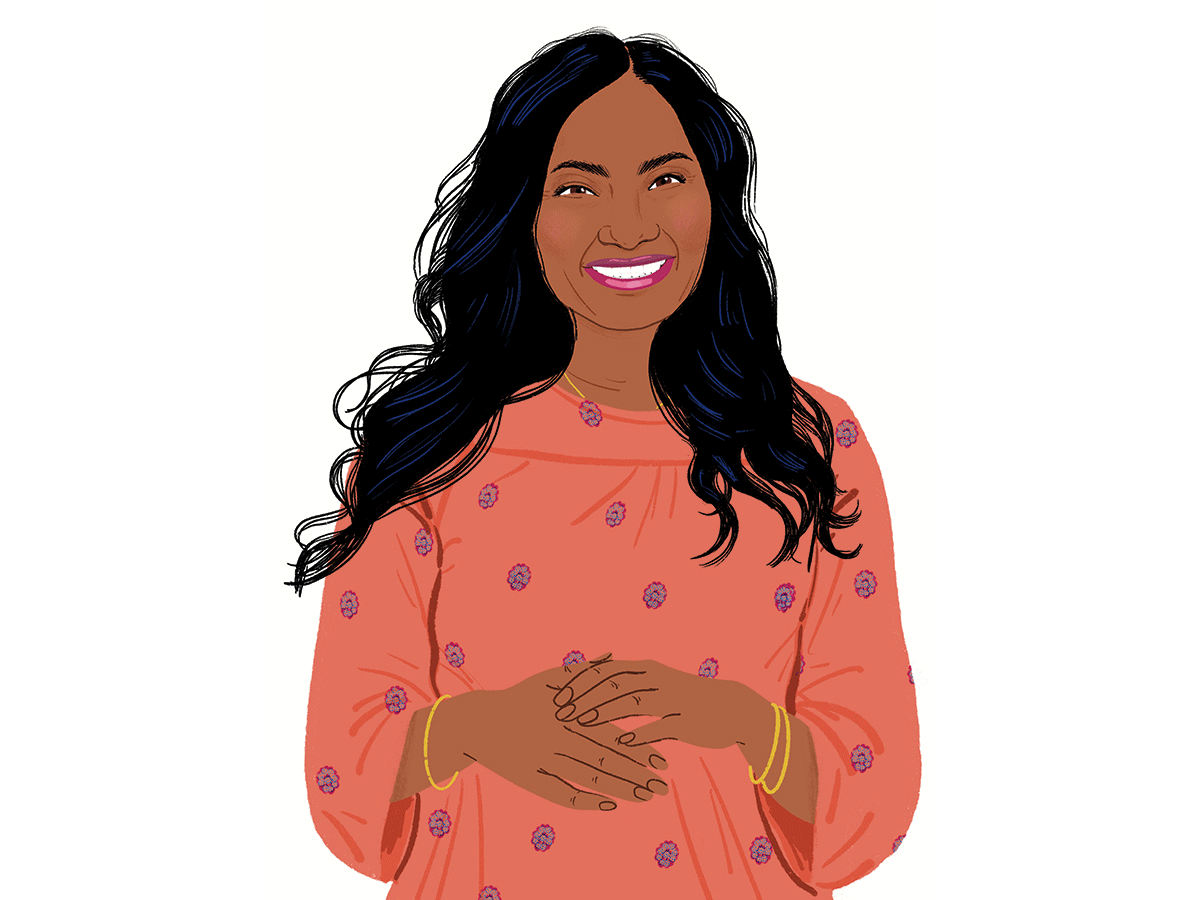This Is Why We Need to Talk More About Sex, and Our Intimate Body Parts, at Every Age

Family doctor Sheila Wijayasinghe is on a mission to banish body shame and speak out about sexual health—with her patients and on TV, as an on-air expert for The Social.
I got into medicine because of something my family experienced when I was younger: My brother was born with a congenital heart defect and unfortunately passed at three months old while undergoing an operation. I was only seven, and had a limited understanding of what was happening at the time, but all I could see—what I remember and emotionally still feel—is how my parents were treated so poorly. Both of them were highly educated; they held PhDs and spoke English fluently, but they were still discriminated against. There were even comments made about my brother’s appearance, that he “looked like a little monkey,” and other kinds of discriminatory remarks.
Having moved from Sri Lanka to the US and then to Edmonton, my parents had experienced many forms of racism. But when they needed support at the most vulnerable time in their lives, they were faced with significant discrimination, which added to the stress of the situation, and the experience really impacted me. I didn’t want them to ever feel like that again, and I don’t want anybody else to feel like that. This is quite central to the work that I do, in wanting to provide care that is safe, especially for newcomers, immigrants and refugees.
Early in my career, I worked in community health centers in Parkdale and the Queen West area of Toronto. Then I moved over to St. Michael’s Hospital, where I practice family medicine. I see all types of people, from babies to the elderly. I also do outreach work connecting with individuals who struggle to access care.
I focus a lot on women’s health and reproductive health. I see that when people don’t know about a part of their body, or it’s a part that they don’t usually address, then they suffer without ever seeking medical attention. That’s why we see so many delays in diagnosis for endometriosis, polycystic ovarian syndrome and other conditions. It’s multi-layered: maybe it’s cultural, maybe it’s generational, maybe they have a history of trauma. There’s so many different reasons why people may not want to talk about their periods, their vulva, their vagina.
I used to work at a mobile clinic where we would do STI screening, pap smears and birth control consults. Some communities we visited wearing a “cancer-screening” hat, and not a “sexual health” label. We changed how we described ourselves to make it more comfortable and culturally acceptable to be seen by a doctor. In an ideal world, I’d be able to come and just say, “It’s important to check your sexual health and it’s important for us to discuss it.” But we have to work with people where they’re at. We have to be sensitive about how ready they are to talk with us, based on their own history.
For example, one lady came on the bus and said, “I just have something hanging out and I don’t know what it is.” And it was, literally, her uterus hanging out of her body. That’s an extreme situation, but variations of that happen all the time. People walk around suffering because they don’t know how to get help. And because this is an area of the body that is associated with so much shame, it can be even harder.
I’ve learned that having these conversations around sex and reproduction and reducing stigma around difficult-to-discuss topics is really important. And we can do that on a larger scale—in the media—and by reaching directly out to communities, with permission, of course, to have those conversations. We need to increase accessibility and prioritize access for everybody. Addressing those barriers and acknowledging discrimination are key to rebuilding trust.
I have a patient who grew up in Canada; she’s 72. I remember asking her a decade earlier, when I was doing her pap, if she had any questions about her sexual health. She looked at me and said, “No. I just assumed that sex stopped after menopause.” More recently I was talking to her because she had a skin condition on her vulva—she’s experiencing a symptom that affects her ability to leave the house. And she said to me, “I don’t know how to apply the cream.” I explained that she should apply it the same way as she would to any other part of her body, but she said, “I just don’t touch that area.”
I told her that I understood how difficult this could be. “Maybe you didn’t learn about your body, especially intimate parts like your genitals and the vulva?” And she said “No, we never talked about that. And I still don’t talk about it.”
But this is why it’s so important to know your body: so you can get the help you need.
I am seeing encouraging shifts happening, as young people talk more about sexual health and their bodies, but there are a number of people who are left out of these conversations, based on cultural nuances. I attended an event in the Eritrean Ethiopian community organized by the younger generation; there was a lot of female genital mutilation that was happening, and that had happened, so we were seeing people with different grades of mutilation. It was really interesting to have those conversations with the younger girls who had experienced it and then with the older generation, as well; they had very different approaches to their bodies. The younger generations were like, “We want to enjoy sex,” and the older generations were like, “That’s not what sex is for.”
As providers, we have to be aware of our own biases and our own comforts and discomforts. My area of interest is sexual health, but I know that that’s not necessarily the case for everybody. And providers are human; doctors are human. We also carry our own cultural beliefs and our value systems and our own traumas, which influence how we care.
For example, despite sexual health being something I love to talk about, I still have never actually had a conversation about sex with my parents. I’ll tell them when I’m appearing on TV [as a medical expert] because they like to watch. I’ll tell them about all the segments that have to do with anything else—menopause, fertility, mental health—but if it has to do with sex, I don’t give them a heads-up. That’s my own discomfort.
My role as a family doctor is to try to navigate all of this in a gentle way so that all my patients do feel comfortable. I find that when you start asking questions, people may not want to talk about sex and their bodies, but it does plant a bit of a seed. It’s about making a space where a patient can ask questions and leaving the door open to have that conversation later.
I think it’s also about recognizing that all humans are messy. We’re all a collection of the stories and the wounds, and the beautiful things and the difficult things, that have made us and brought us to this moment—and understanding that helps me to be a better provider. If we lead with this openness, this kindness and curiosity to try to support each other, that grounds me in the work that I do, and it helps me want to continue doing this work.
Next: How One Woman Connects to Her Culture Through Gardening




